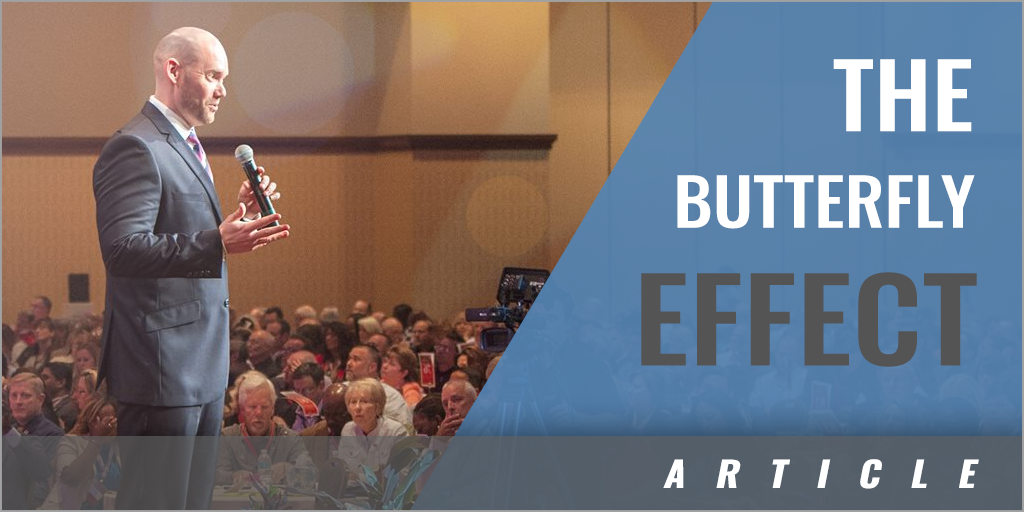|
Originally Published in: The Leadership Playbook One person can have such a strong effect on the world such as Martin Luther King, Bill Gates, Steve Jobs, Michael Jordan, and Mother Teresa. In the same way, one player can have a strong influence on a team. You never know what kind of result your actions can have. You might not be able to do everything, but you can do something. Your something might be just what is needed to begin changing things for the better. Gandhi said, "Be the change you want to see in the world." There is no telling what can be accomplished when you decide to use your influence in a positive way. It is like the butterfly effect, which was first theorized by Edwin Lorenz in 1963 to help explain weather patterns and chaos theory. It states that one small change can result in a large change later on. For instance, a tornado in Texas might have been caused by a series of weather events that all started off with a butterfly flapping its wings in a Brazilian rain forest. The butterfly didn't power the tornado. The flapping of its wings was just the beginning of a chain reaction. One thing happened which leads to another thing happening which leads to another thing happening. If the butterfly hadn't flapped its wings at that exact time, then the weather system might have been different. Here is one such example that Larry Gallegos points out on his Mortgage Cicerone blog. This story highlights a chain reaction of events that changed history, One day in the countryside of Scotland, a common and poor farmer was toiling in his field when suddenly he heard a cry for help. Startled, he recognized someone was in trouble and the plea was coming from a nearby bog. Immediately he dropped what he was doing and ran to the source of the plea. When he located the voice calling for help, he stumbled upon a terrified boy up to his waist in black muck, screaming and sinking deeper and deeper into the bog as each minute passed. The farmer calmly retrieved ropes from nearby, pulled the boy out of the bog and saved his life. The next day, an elegantly dressed nobleman arrived at the farmer's small and simple home. When the nobleman stepped out of his carriage, he introduced himself as the father of the boy the farmer had saved. Emotionally, the nobleman thanked the farmer and asked to repay the farmer for saving his son's life. The farmer waved off the offer and informed the nobleman he could not accept payment for doing what was right. At that moment, the nobleman asked if the farmer had a son in which the farmer replied he did. Subsequently, the nobleman insisted he provide the farmer's son an education on par with that he would provide his own son. Upon leaving the farmer's house, the nobleman told the farmer, "if the lad is anything like his father, he'll no doubt grow to be a man we both will be proud of." The nobleman's prediction concerning the farmer's son proved to be prophetic. True to the nobleman's word, the farmer's son attended the best schools in the world and eventually graduated from St. Mary's Hospital Medical School in London. More importantly, he went on to become known throughout the world as the noted Sir Alexander Fleming, the discoverer of Penicillin. Years afterward, the same nobleman's son who was saved from the bog was stricken with pneumonia. What saved his life this time? Penicillin. The name of the nobleman? Lord Randolph Churchill His son's name? Sir Winston Churchill, the great British Prime Minister who saved England from being taken over by Nazi Germany and Adolf Hitler. Small things can make a difference. Everything that we do matters. A well-placed smile or much needed encouraging word might brighten someone's day to the extent that they treat someone else better. We can make a difference in the world and on our teams just by being the change agent and starting a chain reaction of positivity. |






